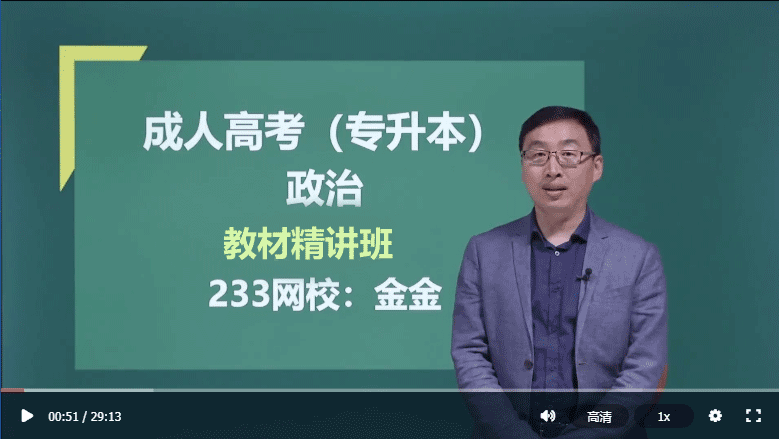ι‰Öη·ΜγêÜηßΘγ≠îιΔ‰φ•Ιφ≥ï
ψÄÄψÄÄ1οΦé φ†Ιφç°δΗäδΗ΄φ•΅ο֨㨀φΒ΄η·çδΙâ
ψÄÄψÄÄε€®ε¹öι‰Öη·ΜιΔ‰φ½ΕοΦ¨ηÄÉγîüδΗçεè·ηÉΫγüΞι¹™φâÄφ€âη·çφ±΅γö³φ³èδΙâοΦ¨δΗçεè·ι¹ΩεÖçδΦöι¹΅εàΑδΗçη°Λη·Üγö³η·çφ±΅φà•ε¦Κε°öγü≠η·≠ψIJεèΣηΠ¹γîüη·çδΗçεΛöοΦ¨ηÄÉγîüιÄöηΩ΅φèêιΪ‰η΅ΣεΖ±γö³γ¨€η·çηÉΫεä¦οΦ¨εê¨φ†Ζεè·δΜΞγêÜηßΘδΗÄδΗΣεèΞε≠êψĹδΗÄδΗΣφ°ΒηêΫοΦ¨δΙÉη΅≥δΗÄγ·΅φ•΅γΪ†γö³εêΪδΙâψIJ
ψÄÄψÄÄοΦà1οΦâ ηÄÉγîüιÄöηΩ΅φû³η·çφ≥ï㨀φΒ΄η·çδΙâ
ψÄÄψÄÄ1οΦâ φ¥Ψγîüφ≥ïφùΞφΚêοΦöwww.examda.com
ψÄÄψÄÄφ€âδΚ¦εçïη·çφ‰·γî±εâçγΦÄφà•εêéγΦÄεä†δΗäη·çφ†Ιφû³φàêψIJ
ψÄÄψÄÄεΠ²οΦöin+correct=incorrdctφùΞφΚêοΦöwww.examda.com
ψÄÄψÄÄuse+ful=usefulφùΞφΚêοΦöwww.examda.com
ψÄÄψÄÄ2οΦâεêàφàêφ≥ï
ψÄÄψÄÄφ€âδΚ¦εçïη·çφ‰·γî±δΗΛδΗΣεçïη·çεêàφàêγö³ψIJ
ψÄÄψÄÄεΠ²οΦögreen+house=greenhouse
ψÄÄψÄÄice+box=icebox
ψÄÄψÄÄ3οΦâγΦ©γïΞφ≥ï
ψÄÄψÄÄφ€âδΚ¦εçïη·çγî±δΚéφâÄεêΪγö³ε≠½φ·çεΛΣεΛöοΦ¨ε€®φ•΅γΪ†δΗ≠ε΅ΚγéΑφ½ΕοΦ¨ιÄöεΗΗγî®γΦ©γïΞγö³εΫΔεΦèψIJ
ψÄÄψÄÄεΠ²οΦöadvertisementοΦçad.
ψÄÄψÄÄLaboratoryοΦçlab.
ψÄÄψÄÄ4οΦâφ΄ΦγΦÄφ≥ï
ψÄÄψÄÄφ€âδΚ¦εçïη·çφ‰·γî±δΗΛδΗΣεçïη·çφ΄ΦγΦÄηĨφàêγö³οΦ¨δΫÜδΗéεêàφàêη·çδΗçεê¨γö³φ‰·φ΄ΦγΦÄεêéγö³εçïη·çεΙΕδΗçφ‰·δΗΛδΗΣεçïη·çγö³γ°Äεçïγ¦Ηεä†ψIJ
ψÄÄψÄÄεΠ²οΦösmoke+fogοΦçsmogοΦàγÉüι¦ΨοΦâ
ψÄÄψÄÄChinese+EnglishοΦçChinglishοΦàδΗ≠φ•΅εΦèη΄±φ•΅οΦâ
ψÄÄψÄÄοΦà2οΦâ ηÄÉγîüιÄöηΩ΅εàÜφûêγîüη·çφâÄε€®γö³εèΞε≠êψĹφ°ΒηêΫγö³δΗäδΗ΄φ•΅οΦ¨ηΩêγî®η΅ΣεΖ±φâÄφé¨φèΓγö³η·≠φ≥ïφû³η·çφ≥ïδΜΞεèäε·ΙεÖΕηɨφô·γö³δΚÜηßΘοΦ¨εè·δΜΞεÜ≥ε°öη°ΗεΛöη·çε€®γâΙε°öεèΞε≠êψĹφ°ΒηêΫδΗ≠γö³εÜÖε€®φΕΒδΙâψIJ
ψÄÄψÄÄηΩêγî®δΗäδΗ΄φ•΅γ¨€φΒ΄η·çδΙâοΦ¨εΩÖιΓΜφ≥®φ³èδΜΞδǴ塆γ²ΙοΦö
ψÄÄψÄÄ1οΦâ εà©γî®εèΞε≠êδΗ≠η΅ΣεΖ±ηÉΫγêÜηßΘγö³εÖΕδΜ•η·çφ±΅γî®εèΞε≠êγö³εüΚφ€§εêΪδΙâφùΞφé®φ•≠γîüη·çγö³η·çδΙâψIJ
ψÄÄψÄÄ2οΦâ ηΩêγî®φâÄφé¨φèΓγö³η΄±η·≠η·≠φ≥ï壨ηΓ®ηΨΨεèΞε≠êδΗ≠εê³ιÉ®εàÜεÖ≥γ≥Μγö³φ†΅γ²Ιγ§ΠεèΖφùΞεàΛφ•≠γîüη·çγö³εêΪδΙâψIJ
ψÄÄψÄÄ3οΦâ δΜÖδΜÖηΠ¹φ±²δΚÜηßΘη·Ξγîüη·çγö³εΛßφΠ²φ³èδΙâοΦ¨δΗçδΗÄε°öηΠ¹φ‰éγôΫη·Ξη·çφ±΅γö³ε°öδΙâφà•εê¨δΙâη·çψIJ
ψÄÄψÄÄ2οΦé γïΞη·Μ
ψÄÄψÄÄγïΞη·ΜοΦàφà•γßΑδΗΚηΖ≥ηΖÉεΦèι‰Öη·ΜοΦâγö³ι΅çγ²Ιε€®δΚéφâΨε΅ΚδΗÄδΗΣφ°ΒηêΫγö³δΗ≠εΩÉφÄùφÉ≥ψIJεè·δΜΞηΩêγî®η·çφ±΅φâ΄φ°ΒοΦàεΠ²η·çφ†ΙψĹεâçγΦÄψĹεêéγΦÄγ≠âοΦâψĹιù†δΗäδΗ΄φ•΅γ¨€φΒ΄η·çδΙâγ≠âφ•Ιφ≥ïδΚÜηßΘδΗçη°Λη·Üγö³η·çφ±΅φà•εèΞε≠êγö³εêΪδΙâψÄ²ε€®φ≠ΛεüΚγΓÄδΗäοΦ¨δΗÄδΗΣδΗçε°Ιφ‰™γêÜηßΘγö³φ°ΒηêΫεè·δΜΞιÄöηΩ΅η·çφ±΅γ€¹γïΞγö³φ•Ιφ≥ïφâΨε΅ΚεÖΕδΗΜηΠ¹γö³φÄùφÉ≥φà•ηß²γ²ΙψIJφ°ΒηêΫγö³γêÜηßΘε€®εΨàεΛßγ®΄εΚΠδΗäεè•εÜ≥δΚéε·ΙεÖΕδΗ≠εèΞε≠êγö³γêÜηßΘψÄ²η΄±η·≠δΗ≠γî±δΚéε≠‰ε€®η°ΗεΛöδΜéεèΞοΦ¨εΗΗεΗΗδΫΩδΗçιIJεΚîη΄±η·≠φÄùγΜ¥γö³δΚΚφ³üεàΑε¦ΑφÉëοΦ¨δΚßγîüιîôηßâο֨妆ηĨιöΨδΚéηΨΨεàΑε·Ιφ°ΒηêΫφ³èδΙâγö³φ≠ΘγΓ°γêÜηßΘψIJγïΞη·Μεàôεè·δΜΞεΗ°εä©φàëδΜ§ηßΘεÜ≥ηΩôδΗΣιöΨγ²ΙψIJ
ψÄÄψÄÄγïΞη·Μγö³φ•Ιφ≥ïφ‰·ιΠ•εÖà〴δΗÄδΗ΄φ†΅ιΔ‰οΦàε€®φ†΅ιΔ‰γö³φÉÖεÜΒδΗ΄οΦâψIJφéΞγùÄη·Μφ°ΒοΦ¨φä™δΫèδΗ≠εΩÉφÄùφÉ≥ψIJεÜçφΒèηßàδΗÄδΗ΄εÖΕδΜ•φ°ΒηêΫγö³ιΠ•εèΞ壨φ€ΪεèΞψIJεêéη·Με°¨γΜ™εΑΨφ°ΒοΦ¨ηΩôφ†ΖεΑ±ηΨΨεàΑδΚÜγïΞη·Μγö³γ¦°γö³ψIJ
ψÄÄψÄÄγïΞη·ΜηΠ¹γ²ΙδΗÄψĹεΑÜδΗçγÜüφ²âγö³ε¦ΑιöΨη·çη·≠φîΨεΦÉδΗçη·ΜοΦ¨ιΔÜδΦöεèΞε≠êεΛßφ³èψIJ
ψÄÄψÄÄγïΞη·ΜηΠ¹γ²ΙδΚ¨ψĹι‰Öη·ΜδΗ≠φ€âφ½ΕδΦöι¹΅εàΑδΗÄδΚ¦ηΨÉιïΩγö³εèΞε≠êοΦ¨εè·δΜΞιÄöηΩ΅η·≠φ≥ïγΜ™φû³δΚÜηßΘδΜÄδΙàφ‰·φî·φ£ëδΗΜιΔ‰γö³γΜÜηä²φèèεÜôεèΞοΦ¨γïΞεéΜγΜÜηä²φèèεÜôγö³ιÉ®εàÜο֨㦥φéΞη·Με΅ΚεÖΕδΗ≠εΩÉεêΪδΙâψIJ
ψÄÄψÄÄγïΞη·ΜηΠ¹γ²ΙδΗâψĹγâΙεàΪφ≥®φ³èι²ΘδΚ¦ι΅çηΠ¹γö³φû³η·ç壨φ†΅γ²Ιγ§ΠεèΖο֨妆δΗΚε°ÉδΜ§εè·ηÉΫδΦöε·Φη΅¥ι΅çηΠ¹η·çφ±΅φ³èδΙâγö³φîΙεè‰ψIJ
ψÄÄψÄÄιÄöεΗΗοΦ¨γïΞη·ΜιIJγî®δΚéηÄÉφüΞφ•΅γΪ†η®ÄδΗΜφ½®φà•εΛßφ³èγö³η·ïιΔ‰ψIJ
ψÄÄψÄÄδΨ΄οΦö
ψÄÄψÄÄAfter a hectic day of work and play, the body needs to rest. Sleep is necessary for good health. During this time, the body recovers from the activities of the previous day .The rest that you get while sleeping enables your body to prepare itself for the next day.
ψÄÄψÄÄThere are four levels of sleep, each being a little deeper than the one before. As you sleep, your muscles relax little by little. Your heart beats more slowly, and your brain slows down. After you reach the fourth level, your body shifts back and forth from one level of sleep to the other.
ψÄÄψÄÄAlthough your mind slows down, from time to time you will dream, Scientists who study sleep state say that when dreaming occurs, your eyeballs begin to move more quickly οΦàalthough your eyelids are closedοΦâ. This stage of sleep is called REM, which stands rapid eye movement.
ψÄÄψÄÄIf you have trouble falling asleep, some people recommend breathing very slowly and very deeply. Other people believe that drinking warm milk will help make you drowsy. There is also an old suggestion that counting sheep will put you to sleep!
ψÄÄψÄÄQuestion: A good title for this passage is____.
ψÄÄψÄÄA. sleep
ψÄÄψÄÄB. good health
ψÄÄψÄÄC. dreams
ψÄÄψÄÄD. work and rest
ψÄÄψÄÄη·¥φ‰éοΦöφ€§ιΔ‰ε±ûδΚéδΗΜφ½®εû΄η·ïιΔ‰οΦ¨γ≠îφΓàδΗΚAιΓΙψIJεÖ®φ•΅εÖ±εàÜδΗΚ妦φ°ΒψIJφ°Βη·¥φ‰éγùΓ〆γö³ι΅çηΠ¹φÄßο֦㧧δΚ¨φ°ΒηßΘι΅äγùΓ〆γö³ε¦¦δΗΣι‰Εφ°Βγî®γùΓ〆δΗ≠粨η²âψĹεΩÉηΖ≥εê³εΛßη³ëγö³φ¥Μεä®ο֦㧧δΗâφ°Βφ¨΅ε΅Κε¹öφΔΠφ½ΕδΦ¥φ€âγ€ΦγêÉφ¥Μεä®ηΩôδΗÄγéΑη±Γο֦㧧妦φ°Βεëäη·âφàëδΜ§φ≤Μγ•½ε˱〆γö³εäûφ≥ïψIJηΩô妦φ°ΒδΗÄγé·φâΘδΗÄγé·οΦ¨εß΄γΜàφ≤Γφ€âγΠΜεΦÄγùΓ〆ηΩôδΗÄδΗΜιΔ‰οΦ¨φâÄδΜΞAιΓΙφ‰·φ≠ΘγΓ°γ≠îφΓàψIJε¦ûγ≠îφ€§ιΔ‰φ½ΕοΦ¨ηÄÉγîüφ½†ι€ÄιÄêεèΞε€Αη·ΜοΦ¨εèΣη·ΜιΠ•εèΞφà•φ€ΪεèΞεΑ±ηΓ¨δΚÜψIJ
ψÄÄψÄÄ4οΦé ηΩÖη·Μ
ψÄÄψÄÄφ½†η°Κφ‰·ε€®φàëδΜ§εΙ≥φ½Εγö³ι‰Öη·ΜοΦ¨ηΩ‰φ‰·ηÄÉγîüε€®ηÄÉη·ïφ½Εγö³ι‰Öη·ΜοΦ¨εΗΗεΗΗι€ÄηΠ¹δΚÜηßΘφ°ΒηêΫγö³δΗΜιΔ‰φà•φ•΅γΪ†γö³δΗ≠εΩÉφÄùφÉ≥οΦ¨ηΩ‰ι€ÄηΠ¹φé¨φèΓδΗÄε°öγö³γΜÜηä²ψIJηΩôφ½ΕοΦ¨φàëδΜ§εΑ±εΨ½ηΩêγî®εèΠδΗÄγßçι‰Öη·ΜφäÄεΖßοΦ¨ε°ÉεΑ±φ‰·φàëδΜ§ηΩô顨εΑÜη°≤γö³ηΩÖη·ΜψIJηΩÖη·Μφ‰·δΗÄγßçφ·îδΗÄηà§ιÄüεΚΠιΪ‰δΗÄεÄçδΜΞδΗäγö³ι‰Öη·Μφ•Ιφ≥ïοΦ¨γ¦°γö³φ‰·ηΩÖιÄüδΜéφ•΅δΗ≠φâΨεàΑφâÄι€ÄδΩΓφ¹·οΦ¨ηßΘεÜ≥ι½°ιΔ‰ψIJ
ψÄÄψÄÄηΩÖη·ΜηΠ¹ιΔÜδΗÄοΦöιΠ•εÖàγΓ°ε°öδΫ†ι€ÄηΠ¹δΜÄδΙàδΚ΄ε°û壨γΜÜηä²οΦ¨εΙΕε·ΙεÖΕεΫΔεΦèηΩ¦ηΓ¨δΦΑη°ΓψIJ
ψÄÄψÄÄηΩÖη·ΜηΠ¹ιΔÜδΚ¨οΦöε€®γïΞη·ΜδΗ≠γî±δΚéε·Ιεê³φ°ΒηêΫ壨εèΞε≠êεΖ≤ηΩ¦ηΓ¨ηΩ΅εàÜφûêοΦ¨εΖ≤εΛßη΅¥δΚÜηßΘδΗΜιĉ壨γΜÜηä²οΦ¨εΙΕηΩ¦ηΓ¨ηΩ΅ε΄Ψε΄£οΦ¨ηΩôφ½ΕεΑ±εè·δΜΞηÄÉηôëγΓ°ε°öε€®δΜÄδΙàε€Αφ•ΙεéΜφâΨη΅ΣεΖ±ι€ÄηΠ¹γö³φ€âεÖ≥γΜÜηä²φà•η·¥φ‰éψIJ
ψÄÄψÄÄηΩÖη·ΜηΠ¹ιΔÜδΗâοΦöεΑΫεΩΪγî®γ€Φγù¦φâΪηΩ΅φ•΅γΪ†οΦ¨φâΨεàΑη΅ΣεΖ±ι€ÄηΠ¹γö³γΜÜηä²φèèηΩΑιÉ®εàÜοΦ¨εΙΕε€®φ€âεÖ≥εèΞε≠êδΗ΄ε¹öε΅Κεê³γßçη°ΑεΩÜγ§ΠεèΖψIJφ•΅γΪ†φΒèηßàε°¨φ·ïοΦ¨εÜçεΑÜεà£γΚΩιÉ®εàÜοΦàφà•ε¹öεÖΕδΜ•γ§ΠεèΖοΦâι΅çφ•Αη·Πη·ΜδΗÄφ§ΓοΦ¨εΙΕηΩ¦ηΓ¨ιIJεΫ™φé®γêÜψIJ
ψÄÄψÄÄιÄöεΗΗοΦ¨ηΩÖη·Μφ≥ïιIJγî®δΚéδΚ΄ε°ûψĹγΜÜηä²εû΄ι‰Öη·ΜγêÜηßΘη·ïιΔ‰ψIJ
ψÄÄψÄÄδΨ΄οΦö
ψÄÄψÄÄLanguages are marvelously complex and wonderfully complicated organs of culture: they embody the quickest and the most efficient means of communicating within their respective culture; in the words of a poet and philosopher,βÄ€ As many languages as one speaks, so many lives one livesβÄù. A culture and its languages are as inseparable as brain and body; while one is a part of the other, neither can function without the other. In learning a foreign language, the best beginning is with the non-verbal linguistic elements of the language, its gestures, its body language. Eye contact is extremely important in English. Direct eye contact leads to understanding, or, as the English maxim has it, seeing eye-to-eye. We can never see eye-to-eye with a native speaker of English until we have learned to look directly into his eyes.
ψÄÄψÄÄQuestion: According to this passage, the best way to learn a foreign language is____.
ψÄÄψÄÄA. to read the works of poets and philosophers
ψÄÄψÄÄB. to find a native speaker and look directly into his eyes
ψÄÄψÄÄC. to begin by learning its body language
ψÄÄψÄÄD. to visit a country where English is spoken
ψÄÄψÄÄη·¥φ‰éοΦöφ€§ιΔ‰ε±ûδΚéγΜÜηä²εû΄η·ïιΔ‰οΦ¨γ≠îφΓàδΗΚCιΓΙψIJεéüφ•΅δΗ≠γö³γ§§ε¦¦εêçβÄ€In learning a foreign language, the best beginning is with the non-verbal linguistic elements of the language, its gestures, its body language.βÄùοΦ¨εÖΕδΗ≠βÄ€non-verbalβÄùφ³èδΗΚβÄ€ιùûη·≠η®Äγö³βÄùψIJφ≠ΛεèΞεΛßφ³èδΗΚοΦöε≠ΠεΛ•η·≠γî±ιùûφ•΅ε≠½φÄßη·≠η®Ä妆㥆εΦÄεß΄γΜèοΦ¨εç≥δΜéε≠ΠδΙ†η°≤ηΩôγßçη·≠η®Äγö³δΚΚγö³φâ΄εäΩψĹη²ΔδΫ™η·≠η®ÄεÖΞφâ΄ψÄ²ε¦†φ≠ΛβÄ€to begin by learning its body languageβÄùφ≠ΘεΞΫδΗéιΔ‰φ³èεêΜεêàοΦ¨φïÖεΚîφé®φ•≠CιΓΙδΗΚφ≠ΘγΓ°γ≠îφΓàψIJηÄÉγîüεèΣι€ÄηΩêγî®ηΩÖη·Μφ≥ïοΦ¨εΩΪιÄüφâΨεàΑηΩôεèΞη·ùφâÄε€®δΫçγΫ°οΦ¨γ³Εεêéφ†Ιφç°εèΞφ³èε¹öε΅Κφ≠ΘγΓ°γö³εàΛφ•≠ψIJ
ψÄÄψÄÄ4οΦé γ†îη·Μφ≥ïοΦàstudy readingοΦâ
ψÄÄψÄÄιôΛδΚÜε€®ι‰Öη·ΜγêÜηßΘδΗ≠ηΩêγî®γïΞη·Μφ≥ï壨η·Μφ≥ïδΙ΄εΛ•οΦ¨φ€âφ½ΕηΩ‰ι€ÄηΠ¹δΜîγΜÜι‰Öη·Μφ•΅γΪ†γö³φüêδΗÄγâΙε°öιÉ®εàÜοΦ¨εä¦φ±²ε·ΙεÖΕφ€âηΨÉφΖ±γö³γêÜηßΘοΦ¨φà•ε·ΙεÖΕηΩ¦ηΓ¨εΫ£γΚ≥ψĹφÄΜγΜ™ψĹφé®φ•≠γ≠âψIJηΩôφ½ΕεΑ±ι€ÄηΠ¹ε·ΙηΩôιÉ®εàÜδΜîγΜÜι‰Öη·ΜοΦ¨δΜΞδΨΩγêÜηßΘδΫ€ηÄÖη®ÄεΛ•δΙ΄φ³èψIJηΩôγßçδΜîγΜÜγö³ι‰Öη·Μφ•Ιφ≥ïεΑ±γ†îη·Μφ≥ïοΦ¨ιÄöεΗΗιIJγî®δΚéφé®φ•≠εû΄ι‰Öη·ΜγêÜηßΘη·ïιΔ‰ψIJ
ψÄÄψÄÄδΨ΄οΦö
ψÄÄψÄÄVery high waves are destructive when they strike the land. Fortuately, this seldom happens. One reason is that out at sea, waves moving in one direction almost always run into waves moving in a different direction. The two sets of waves tend to cancel each other out. Another reason is that water is shallower near the shore. As a wave gets closer to land, the shallow bottom helps reduce its strength.
ψÄÄψÄÄBut the power of waves striking the shore can still be very great. During a winter gale, waves sometimes strike the shore with the force of 6,000 pounds for each square foot. That means a wave, 25 feet high and 500 feet along its face, may strike the shore with a force of 75 million pounds.
ψÄÄψÄÄYet the waves, no matter how big or how violent, affect only the surface of the sea. During most raging storms, the water a hundred fathomsοΦà600 feetοΦâ beneath the surface is just as calm as on a day without a breath of wind.
ψÄÄψÄÄQuestion: From your reading of the paragraph, which of the following is true? A. At a depth of 1,200 feet the effects ofa violent surface storm are frightful.
ψÄÄψÄÄB. A submarine commander navigating his vessel at a depth of 700 feet will not be affected by a raging surface storm.
ψÄÄψÄÄC. A typhoon 500 miles out at sea can stir up the ocean bed.
ψÄÄψÄÄD. If high waves can strike the shore with a horizontal force of 75 million pounds, the vertical force of such waves can have an even greater effect upon the ocean floor.
ψÄÄψÄÄη·¥φ‰éοΦöφ€§ιΔ‰γ≠îφΓàδΗΚBιΓΙψIJφ≠ΛιΓΙδΗΚεàΛφ•≠ιΔ‰ψÄ²ε€®φ€§φ•΅φäΞεêéδΗÄφ°ΒοΦ¨δΫ€ηÄÖηΓ®ηΩΑγö³φ³èφÄùδΗΚοΦöδΗçγ°ΓφΒΖφΒΣεΛöιΪ‰οΦ¨εΛöε΅Ε㨦οΦ¨ε°ÉεèΣεΫ±ε™çεàΑφΒΖιùΔδΜΞδΗ΄φ€âιôêγö³φΖ±εΚΠψIJεç≥δΫΩε€®γö³ιΘéφö¥δΗ≠οΦ¨600η΄±εΑΚδΜΞδΗ΄εΑùη·ïγö³φΑ¥εüüδΙüδΦöεÉèφ≤Γφ€âδΗÄδΗùιΘéγö³γôΫεΛ©ι²Θφ†ΖιΘéεΙ≥φΒΣιùôψIJιÄâιΓΦAφ³èδΗΚβÄ€γ΄²ιΘéεΖ®φΒΣδΦöε·Ι1200η΄±εΑΚδΜΞδΗ΄γö³φΑ¥εüüιĆφàêεè·φÄïγö³εΫ±ε™çβÄùοΦ¦BιΓΙφ³èδΗΚβÄ€δΗÄεêçε€®φΑ¥φΖ±700η΄±εΑΚδΜΞδΗ΄ι©Ψι©ΕφΫ€ηâ΅ηΓ¨γö³φ¨΅φ¨Ξεë‰φ€âδΦöεè½φΒΖιùΔδΗäγö³γ΄²ιΘéεΖ®φΒΣγö³εΫ±ε™çβÄùοΦ¦CιΓΙφ³èδΗΚβÄ€ιΘéιÄüφ·èεΑèφ½Ε500紱顨γö³εèΑιΘéηÉΫφΒΖεΚïγö³δΗ€ηΞΩφéÄδΗäφùΞβÄùοΦ¦DιΓΙφ³èδΗΚβÄ€εΠ²φû€εΖ®φΒΣηΔ≠ε΅ΜφΒΖε≤Ηγö³εä¦ι΅èφΑ¥εΙ≥φ•ΙεêëδΗΚ75000000γΘÖοΦ¨ι²ΘδΙàε°Éγö³εû²γ¦¥φ•ΙεêëδΫ€γî®ε€®φΒΖεΚïγö³εä¦ι΅èφ·îφΑ¥εΙ≥φ•ΙεêëδΫ€γî®εä¦ηΩ‰ηΠ¹εΛßβÄùψIJφ†Ιφç°εêéδΗÄφ°ΒεÜÖε°ΙοΦ¨εèΣφ€âBιΓΙφ≠ΘγΓ°ο֨妆δΗΚφΫ€ηâ΅φ‰·ε€®700η΄±εΑΚδΜΞδΗ΄φΑ¥εüüηàΣηΓ¨ψIJAιΓΙοΦ¨CιΓΙδΗéBιΓΙγü¦γ¦ΨοΦ¨εè·δΜΞφé£ιôΛοΦ¨DιΓΙε€®γü≠φ•΅δΗ≠φ≤Γφ€âφΕâεèäψIJφ≠Θφ‰·εüΚδΚéε·ΙηΩôιÉ®εàÜηΩ¦ηΓ¨γ†îη·ΜοΦ¨ηÄÉγîüφâçηÉΫεΛüεΨ½ε΅Κφ≠ΘγΓ°γ≠îφΓàψIJ
ψÄÄψÄÄ5οΦé φï¥δΫ™ι‰Öη·Μ
ψÄÄψÄÄδΗÄγ·΅φ•΅γΪ†φ‰·δΗÄδΗΣφï¥δΫ™ψIJφ•΅γΪ†δΫ€ηÄÖιÄöηΩ΅φï¥γ·΅φ•΅γΪ†γö³φû³φÄùψĹεΗÉε±ÄψĹε·ΙδΚ΄γâ©γö³η°Κη·¹ψÄ¹η·¥φ‰éψĹεèôηΩΑ壨φèèεÜôγ≠âφ•Ιφ≥ïεêëη·ΜηÄÖδΦ†φéàγüΞη·Ü壨δΩΓφ¹·ψIJγüΞη·Ü壨δΩΓφ¹·φ‰·ε≠‰ε€®δΚéφï¥γ·΅φ•΅γΪ†δΙ΄δΗ≠οΦ¨ηĨδΗçφ‰·ε≠‰ε€®δΚéε≠ΛγΪ΄γö³η·çεèΞδΙ΄εÜÖψÄ²ε€®ι‰Öη·ΜεèΞψĹφ°ΒψÄ¹γ·΅φ½ΕιÉΫεΚîδΜéφï¥δΫ™εéüεàôε΅ΚεèëψIJηΩôφ†ΖφâçηÉΫφ½ΔγêÜηßΘε≠½ιùΔεêΪδΙâοΦ¨εèàηÉΫφ¥ûε·üφΖ±ε±²εêΪδΙâοΦ¦φ½ΔηÉΫ〴εàΑδΗäδΗ΄φ•΅εëΦεΚîγö³η·≠η®ÄγΜ™φû³οΦ¨εèàηÉΫδΫ™δΦöεàΑε≠½ι΅¨ηΓ¨ι½¥γö³φΫ€ε€®εêΪδΙâοΦ¦φ½ΔηÉΫδΚÜηßΘφ•΅γΪ†γö³εê³ε±ÄιÉ®γö³εêΪδΙâοΦ¨εèàηÉΫφä™δΫèφ•΅γΪ†γö³δΗ≠εΩÉφÄùφÉ≥οΦ¨δΜéηĨε·Ιφï¥γ·΅φ•΅γΪ†ηΨΨεàΑηΨÉιΪ‰ε±²φ§Γγö³γêÜηßΘψIJ
ψÄÄψÄÄφï¥δΫ™ι‰Öη·Μφ€âδΗΛδΗΣε±²φ§ΓοΦö
ψÄÄψÄÄοΦà1οΦâ γ·΅γΪ†γö³ι‰Öη·ΜψÄ²ε€®ι‰Öη·ΜδΗÄγ·΅φ•΅γΪ†φ½ΕοΦ¨εΚîδΜéδΚîδΗΣφ•ΙιùΔι©Ψι©≠φï¥γ·΅φ•΅γΪ†οΦ¨ι¹ΒεΨΣεΠ²δΗ΄γö³φ®ΓεΦèοΦöφ•΅γΪ†γö³φ†΅ιΔ‰οΦ¦δΫ€ηÄÖοΦ¦εüΚφ€§εÜÖε°ΙοΦ¦δΚ΄ε°ûοΦ¦φ•΅γΪ†γö³γâΙγ²ΙψĹδΚâ簰壨φâΙη·³φ³èηß¹ψIJηΩôφ†Ζεè·δΜΞι¹ΩεÖçγ¦≤γ¦°φÄß壨γ•èεΩΫι¹½φΦèψIJι‰Öη·Μφ½ΕοΦ¨εè·φääδΗΜηΠ¹γ≤Ψεä¦φîΨε€®φ€âγî®δΩΓφ¹·δΗäοΦ¨εΛßεΛßε΅èεΑëεΛ³γêÜφ½†γî®δΫ€φ¹·γö³φ½Ει½¥οΦ¨εΙΕδΫΩδΩΓφ¹·φùΓγêÜ娕οΦ¨δΜΞδΨΩγêÜηßΘ壨εêΗφîΕψIJ
ψÄÄψÄÄοΦà2οΦâ εèΞψĹφ°Βγö³ι‰Öη·ΜψIJεèΞε≠êφ‰·δΗÄδΗΣφï¥δΫ™οΦ¨φ°ΒδΙüφ‰·δΗÄδΗΣφï¥δΫ™ψIJι‰Öη·ΜεèΞε≠êφ½ΕοΦ¨εΠ²φû€δΗçεΛΣιïΩοΦ¨ηΠ¹δΗÄεèΘφΑîη·Με°¨ψIJηΩôφ†ΖδΗçδΜÖη·ΜιÄüεΩΪοΦ¨ηĨδΗîφ€âεä©δΚéγêÜηßΘψIJεΫ™γ³ΕοΦ¨η΄±η·≠εèΞε≠êδΗÄηà§φ·îηΨÉιïΩοΦ¨δΗçηÉΫδΗÄεèΘφΑîη·Με°¨ψIJηΩôφ½ΕεΚîδΜΞηΨÉεΛßγö³φ³èγΨΛδΗΚεçïδΫçηΩ¦ηΓ¨ι‰Öη·ΜψIJφâÄηΑ™φ³èγΨΛφ‰·φ¨΅εèΞε≠êδΗ≠εè·δΜΞεàÜεΦÄφùΞ〴γö³εê³δΗΣιÉ®εàÜοΦ¨φ·èδΗΣιÉ®εàÜιÉΫφ€âεÖΕγ¦Ηε·Ι㴧γΪ΄γö³φ³èδΙâψIJ
ψÄÄψÄÄφääεèΞε≠ê壨φ°ΒηêΫ〴φàêφï¥δΫ™εΙΕδΗçφ³èεë≥γùÄηΠ¹φääεèΞδΗ≠φâÄφ€âγö³η·çψĹφ°ΒηêΫδΗ≠φâÄφ€âγö³εèΞε≠êιÉΫ〴εΨ½εê¨γ≠âι΅çηΠ¹ψIJδΗÄδΗΣεèΞε≠êδΗ≠φ€âδΚ¦η·çφ‰·εÖ≥ιî°η·çοΦ¨φ€âδΚ¦η·çεèΣφ‰·γΜ™φû³δΩΓεèΖοΦ¨φ€âδΚ¦η·çεèΣηΓ®γΛΚηΨÖεä©δΩΓφ¹·ψIJε·ΙεâçηÄÖεΚîφ≥®φ³èοΦ¨ε·ΙεêéδΗΛηÄÖεè·δΗÄφâΪηĨηΩ΅ψIJ
γ¦ΗεÖ≥φé®ηçê
- 2017εΙ¥φàêδΚΚιΪ‰ηÄÉδΗ™εç΅φ€§η΄±η·≠ηÄÉη·ïεéÜεΙ¥γ€üιΔ‰δΫ€φ•΅γ≤ΨιÄâφ±΅φÄΜ03-28
- 2017εΙ¥φàêδΚΚιΪ‰ηÄÉδΗ™εç΅φ€§η΄±η·≠ηÄÉη·ïεéÜεΙ¥γ€üιΔ‰δΫ€φ•΅γ≤ΨιÄâδΙù03-24
- 2017εΙ¥φàêδΚΚιΪ‰ηÄÉδΗ™εç΅φ€§η΄±η·≠ηÄÉη·ïεéÜεΙ¥γ€üιΔ‰δΫ€φ•΅γ≤ΨιÄâεÖΪ03-24
- 2017εΙ¥φàêδΚΚιΪ‰ηÄÉδΗ™εç΅φ€§η΄±η·≠ηÄÉη·ïεéÜεΙ¥γ€üιΔ‰δΫ€φ•΅γ≤ΨιÄâδΗÉ03-24
- 2017εΙ¥φàêδΚΚιΪ‰ηÄÉδΗ™εç΅φ€§η΄±η·≠ηÄÉη·ïεéÜεΙ¥γ€üιΔ‰δΫ€φ•΅γ≤ΨιÄâεÖ≠03-24
| ΩΈ≥ΧΉ®“ΒΟϊ≥Τ | Ϋ≤ Π | ‘≠Φέ/”≈ΜίΦέ | ΟβΖ―Χε―ι | ±®Οϊ |
|---|---|---|---|---|
| ”οΈΡ(ΗΏΤπΒψ)ΨΪΫ≤Αύ | ΒΥΨΐΟΡ | ΘΛ150 / ΘΛ150 |  |
±®Οϊ |
| ”Δ”ο(ΗΏΤπΒψ)ΨΪΫ≤Αύ | Monica | ΘΛ150 / ΘΛ150 |  |
±®Οϊ |
| ΐ―ß(ΈΡ)ΨΪΫ≤Αύ | ΆθΖΦ | ΘΛ150 / ΘΛ150 |  |
±®Οϊ |
| ΐ―ß(άμ)ΨΪΫ≤Αύ | ¬ό”Ή÷Ξ | ΘΛ150 / ΘΛ150 |  |
±®Οϊ |
| ¥σ―ß”οΈΡ(Ή®…ΐ±Ψ)ΨΪΫ≤Αύ | ≈Ζ―τΑΊΝΊ | ΘΛ150 / ΘΛ150 |  |
±®Οϊ |
| ”Δ”ο(Ή®…ΐ±Ψ)ΨΪΫ≤Αύ | Monica | ΘΛ150 / ΘΛ150 |  |
±®Οϊ |
| ΗΏΒ» ΐ―ß(“Μ)(Ή®…ΐ±Ψ)ΨΪΫ≤Αύ | ΆθΧΈ | ΘΛ150 / ΘΛ150 |  |
±®Οϊ |
| ΗΏΒ» ΐ―ß(Εΰ)(Ή®…ΐ±Ψ)ΨΪΫ≤Αύ | ¬ό”Ή÷Ξ | ΘΛ150 / ΘΛ150 |  |
±®Οϊ |
Η®ΒΦΩΈ≥Χ
- ΗΏΤπΒψ- ΐ―ß(ΈΡ Ζ≤ΤΨ≠άύ)

- ΆθΖΦάœ Π
 ΟβΖ― ‘Χΐ
ΟβΖ― ‘Χΐ
- ΗΏΤπΒψ-”Δ”ο

- Monicaάœ Π
 ΟβΖ― ‘Χΐ
ΟβΖ― ‘Χΐ
- Ή®…ΐ±Ψ-¥σ―ß”οΈΡ

- ≈Ζ―τΑΊΝΊάœ Π
 ΟβΖ― ‘Χΐ
ΟβΖ― ‘Χΐ
ΑύΦΕΫι…ή
ΧΉ≤ΆΑϋΚ§ΘΚΉ®…ΐ±ΨVIPΑύ/ΗΏΤπΒψVIPΑύΘ®Κ§ΨΪΫ≤+’φΧβΫβΈω+ΡΘΩΦΒψΧβ)
ΧΉ≤Ά”≈ ΤΘΚ1ΓΔΥχΕ®ΚΥ–ΡΩΦΒψ
2ΓΔΩΦ«ΑΖΔΖ≈2ΧΉ ‘Χβ
3ΓΔΟβΖ―÷Ί―ß“Μ¥Έ±Θ’œ
≈δΧΉΖΰΈώΘΚ1ΓΔΟβΖ―ΧβΩβ
2ΓΔΩΈ≥ΧΫ≤“ε+ΩΈΦΰœ¬‘Ί+“ΤΕ·ΩΈΧΟ







 ΟβΖ― ‘Χΐ
ΟβΖ― ‘Χΐ 




